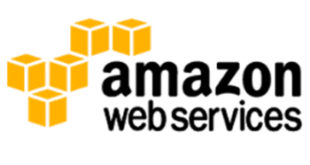Cities worldwide are harnessing the power of telecommunications and fast-paced technological developments to get themselves connected and working smarter and more efficiently in terms of use of resources, improved service delivery and quality of life, while supporting the low carbon economy.
By 2020, it is estimated that there will be 26.5 billion physical objects embedded with technology in an industry worth $1.9 trillion by that time. Therefore, key stakeholders, tech businesses, resellers and service providers need to understand the opportunity, the value and their role in developing Smart Cities.
Better services
According to the European Commission, digital technologies translate into better public services for citizens, better use of resources and less impact on the environment. By generating huge amounts of data then using that data intelligently, the possibilities are endless and the operational costs of delivering services will be reduced.
The topic of Smart Cities is vast and incorporates a range of areas from green technologies to stricter, more measurable governance to improve efficiency around transport, buildings and other public services, amongst other things. All of these require digital solutions to get the cities properly connected.
Cities that don’t embrace the digital evolution won’t be able to keep up and will lose consumer spend. The benefits in terms of public and customer service will be significant with everything connected – from traffic lights, to street lighting and parking information. Another trend will be the growth of open, accessible data that will be used to develop the apps that will deliver information to people’s fingertips, via mobile devices.
Up to $40 billion will be spent on smart city technologies by 2016. This means things are moving very quickly as innovators come up with the technologies to deliver what cities need in terms of information and connectivity.
How technology firms will benefit
Helping visitors and consumers move around a city or shopping centre by pushing out information that will help them travel and navigate more easily, improve their environment and spend their money in venues that genuinely meet their needs, is beneficial. If traffic is moving steadily, parking availability is communicated and sales and promotions are shared with them, consumers are more likely to invest their time visiting city and town centres, plan to come back soon, hopefully stay longer, and potentially spend more too.
Purple WiFi, the cloud-based social WiFi platform sees location services taking off massively in the next few years with Smartphone savvy citizens and existing users of legacy IT systems being the driving force for more location content and services to rival virtual environments. The outdoor WiFi market will rise from $15bn a year to 37bn by 2018; the indoor WiFi market will be considerably more, representing an addressable market that needs a business model to reap its projected rewards.
By allowing venues and outdoor public spaces greater connectivity, the future will be a digitally-led, improved experience for consumers and businesses alike – with less wasted resources and much more efficiency.
It’s clear that Smart Cities can offer immeasurable value to the people living and working in them, but it’s often not as easy to see how businesses and service providers can profit from providing Smart City solutions. However, I think the key word here is potential. Who doesn’t want to be part of an industry that’s said to be worth $408 billion by 2020?
A huge new market has been created simply by the need for installation and maintenance of Smart City applications. Individual elements of a Smart City, such as connected street lighting or city-wide WiFi, will result in considerable savings for the municipality. It’s therefore easy for service providers to build a business case and a short-term business model for the value chain. Other aspects of Smart Cities, like a pollution monitoring system, might have a longer term business case. It could improve air quality, attract talented people and new businesses to the city, and save money on health services.
 PCR Tech and IT retail, distribution and vendor news
PCR Tech and IT retail, distribution and vendor news


